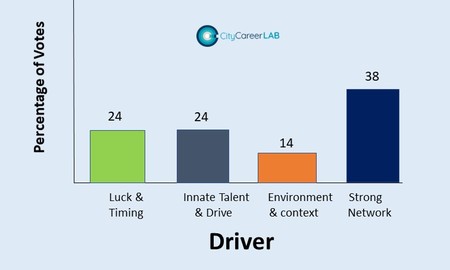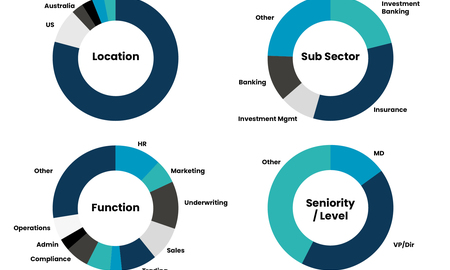Stick or Twist? That is the (career) question for many in Financial Services in 2021
Feb. 03, 2021, at 07:17 PM

On the one hand, there will be those who don’t want to rock the boat, who crave normality and don’t want to add any more upheaval to their lives than they have had to endure already in the last 12 months. Many people are more focused on getting their social lives back to normal than they are switching careers or job hunting. They would much rather be putting their time and energy into catching up with friends and family and getting away for a holiday or two. Surely, a job change at this time just isn’t worth the time or the risk?
Certainly, this was the effect the credit crisis had on talent supply post 2009. Most Recruiters from that era will recall how hard it was to fill the few jobs that were being opened and marketed at the time. Understandably, there was genuine fear in the air given that financial services firms were in the eye of the storm. We also shouldn’t overlook the fact there will be some employers who have focused on looking after their people and have even experienced much higher levels of engagement through the pandemic, which often translates into increased loyalty in the workforce.
However, spare a thought for those looking to switch jobs, employer (or even careers) after a year or more of staying put through the pandemic. Some of them may even have taken the risk of switching jobs during 2020 if it wasn’t for the state of the jobs market during the spring/summer of 2020, which are traditionally the busiest seasons for moving jobs in the City – falling as they do between most bonus cycles.
I predict a lot of pent-up demand from those wanting to escape a job (or a boss) that makes them miserable and they may have been forced to endure for far longer than under normal circumstances.
There will also be those whose eyes have been opened to a different perspective and way of life that has come about from ditching the daily commute and spending more time with their families. Indeed, back in August 2020, KPMG reported that 44% of workers in Financial Services were considering a career change as a result of the pandemic. Logic surely suggests that this number would be even higher now after a more sustained lockdown. Without doubt, there will have been a lot of soul searching and questioning of priorities during this time, but how much that will be written off as pipe-dreams when the reality bites and people realise that bills still need to be paid? Which leads me to the last section of the workforce who are likely to be considering a move i.e. anyone agitating for a pay rise or bonus uplift that may just prove harder to come by given the year that was.
It’s clear that many of the above effects will cancel each other out - just like in any other year, but my conclusion is that, assuming we see continued resilience or even growth in the job market in 2021, then there will be more than enough supply to meet the demand (unlike in 2009).
What do you think? Will there be more more twist or stick in 2021 and in which areas?
Certainly, this was the effect the credit crisis had on talent supply post 2009. Most Recruiters from that era will recall how hard it was to fill the few jobs that were being opened and marketed at the time. Understandably, there was genuine fear in the air given that financial services firms were in the eye of the storm. We also shouldn’t overlook the fact there will be some employers who have focused on looking after their people and have even experienced much higher levels of engagement through the pandemic, which often translates into increased loyalty in the workforce.
However, spare a thought for those looking to switch jobs, employer (or even careers) after a year or more of staying put through the pandemic. Some of them may even have taken the risk of switching jobs during 2020 if it wasn’t for the state of the jobs market during the spring/summer of 2020, which are traditionally the busiest seasons for moving jobs in the City – falling as they do between most bonus cycles.
I predict a lot of pent-up demand from those wanting to escape a job (or a boss) that makes them miserable and they may have been forced to endure for far longer than under normal circumstances.
There will also be those whose eyes have been opened to a different perspective and way of life that has come about from ditching the daily commute and spending more time with their families. Indeed, back in August 2020, KPMG reported that 44% of workers in Financial Services were considering a career change as a result of the pandemic. Logic surely suggests that this number would be even higher now after a more sustained lockdown. Without doubt, there will have been a lot of soul searching and questioning of priorities during this time, but how much that will be written off as pipe-dreams when the reality bites and people realise that bills still need to be paid? Which leads me to the last section of the workforce who are likely to be considering a move i.e. anyone agitating for a pay rise or bonus uplift that may just prove harder to come by given the year that was.
It’s clear that many of the above effects will cancel each other out - just like in any other year, but my conclusion is that, assuming we see continued resilience or even growth in the job market in 2021, then there will be more than enough supply to meet the demand (unlike in 2009).
What do you think? Will there be more more twist or stick in 2021 and in which areas?








